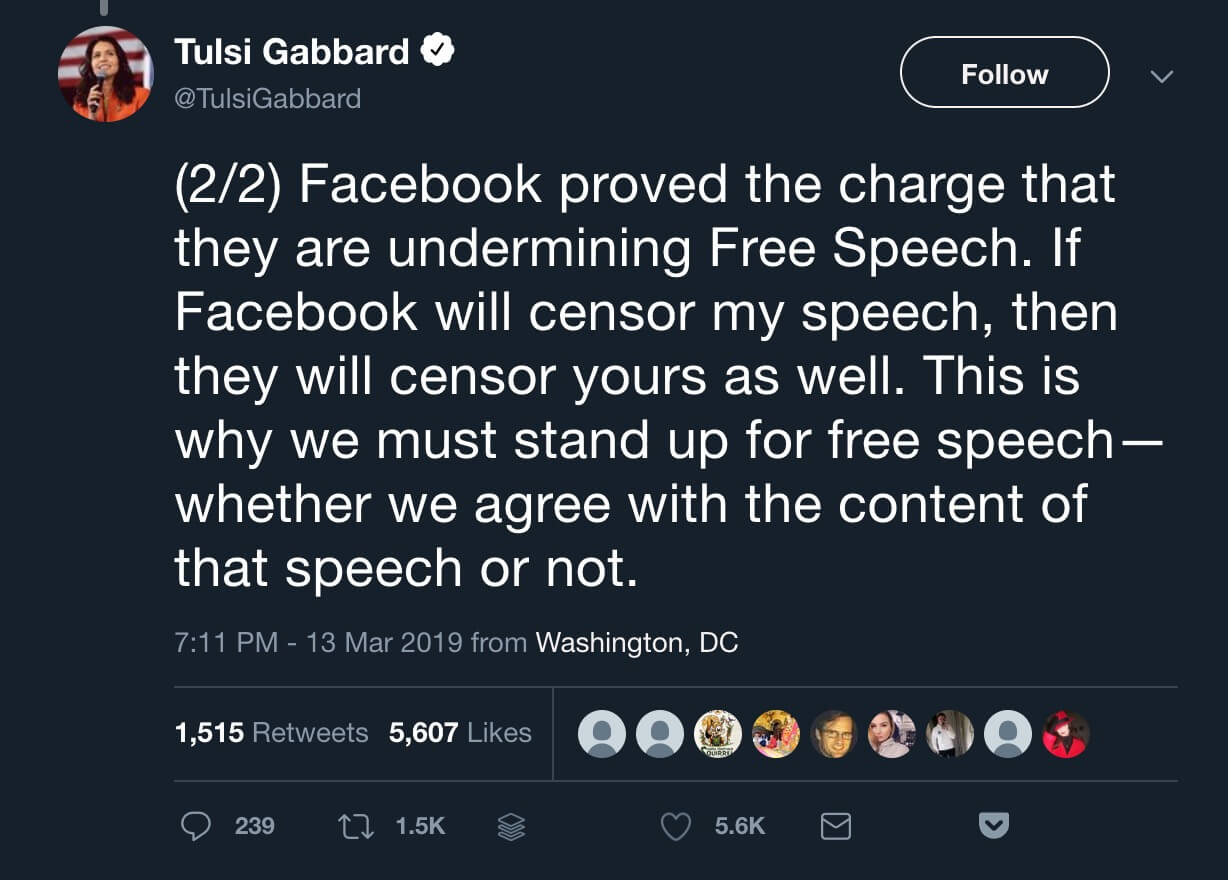A lawsuit brought by conservative commentator and activist Laura Loomer and Freedom Watch against four social media giants has been dismissed by a court.
Last November, Loomer handcuffed herself to the entrance of Twitter’s New York headquarters, protesting what she saw as the platform’s shadowbanning of conservatives as well as Twitter’s double standards in the way they treat her fellow firebrands with opposing ideological views.
Her lawsuit named Twitter, along with Google, Facebook, and Apple, as conspiring in unconstitutional suppression of speech and other content, in order to inflict severe financial loss to Freedom Watch – a conservative non-profit – and similar organizations.
But a DC federal judge found that the plaintiffs, Loomer and Freedom Watch did not present justifiable and viable legal claims (pdf) about the social media companies’ alleged politically and ideologically motivated bias and conspiracy against them.
While they have established standing, the Plaintiffs have failed to state viable legal claims. Consider first their Sherman Act arguments. Section 1 of the Sherman Act states that “[e]very contract, combination . . . , or conspiracy, in restraint of trade or commerce among the 7 several States, or with foreign nations, is declared to be illegal.” 15 U.S.C. § 1. “Independent action is not prescribed” by § 1. Monsanto Co. v. Spray-Rite Service Corp., 465 U.S. 752, 760 (1984). So a valid claim must allege that the Platforms “had a conscious commitment to a common scheme designed to achieve an unlawful objective.” Id. at 764. The Plaintiffs’ claim fails to do this.
True, the Amended Complaint repeatedly states that the Platforms have engaged in a conspiracy or illegal agreement. See, e.g., Am. Compl. 4, 5, 12, 17. But it offers only these conclusory statements to suggest the existence of such an agreement. It includes no allegations, for example, that any of the Platforms met or otherwise communicated an intent to collectively suppress conservative content.
The tech giants stood accused of breaching the Sherman Act, DC’s public accommodation law, and the First Amendment with the goal of promoting their leftist agenda. But the judge decided that the plaintiffs did not support these claims with proper evidence.
Plaintiffs offer no market share data for any of the Platforms in either the local or worldwide markets for media and news publications. Instead, they make claims about the “social network global market,” the “social networking advertising revenue” market, the “digital ad revenues” market, and the “mobile ad market.” Am. Compl. 18. And though the Amended Complaint states that “59% of Twitter users get their news through the Twitter platform” and that “48% of all American adults [get] their news from Facebook,” it offers no support for the notion that either firm has achieved or tried to achieve monopolization of the nationwide media and news publications market.
The lawsuit claimed that financial losses had been suffered due to the internet giant’s alleged suppression of their content, and accused them of conspiring to form a monopoly of the media market.
The Plaintiffs also suggest that the Platforms “have engaged in ‘conscious parallelism’ and in concert mimicked each others’ refusal to deal with Freedom Watch and Ms. Loomer.” Am. Compl. 21. But Freedom Watch admits that it “has and still does pay Google and YouTube, Facebook and the other Defendants for services.” Id. at 11. This admission contradicts assertions of a coordinated “refusal to deal” with the Plaintiffs.
But the judge – while suggesting that the plaintiffs raise “non-trivial concerns” – said they at the same time failed to connect these concerns of major US tech companies suppressing their political views, to justifiable legal claims.
Regarding the claim of the violation of the First Amendment, made in the complaint, the ruling said that alleged censorship may not be ethical under the American tradition of freedom of speech – however, “it is not actionable under the First Amendment unless perpetrated by a state actor.”
Loomer and Freedom Watch now have the right to appeal the ruling – but that’s highly unlikely to change, as technically private companies can’t violate rights.
In the last week, Donald Trump Jr has criticized big tech censorship, suggesting it could end in a Chinese-style social credit system and presidential candidate Tulsi Gabbard has also expressed concern about tech companies suppressing free speech.














